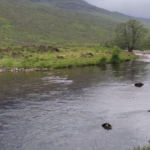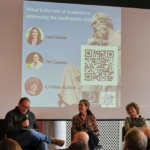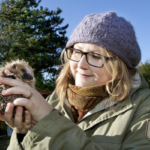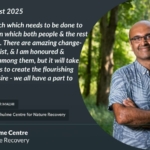Academic policy engagement for biodiversity needs to take transdisciplinarity seriously

Biodiversity is the basis of life on Earth and the root of human existence. The complex synergy between plants, animals, earth and air underpins everything people do, and in turn, everything people do can impact biodiversity.
As university-based researchers, we are interested in understanding the complexity of biodiversity, but also pooling evidence, expertise and experience to inform action in the wider world. Here, we argue that researchers, universities, and policymakers seeking to enable evidence-informed decision making for biodiversity need to take transdisciplinarity seriously. In other words, they need to go beyond mono-disciplinary and single expert approaches and engage with the full spectrum of different people, places and perspectives that are required to understand biodiversity as an object of concern.
Policy for biodiversity cuts across multiple domains. International trade, supply chains, infrastructure, agriculture, human health, transport, and housing, to name but a few, all rely upon and impact the living world. Biodiversity loss has variable causes, impacts and risks in different places, raising important questions about equity and justice. Developing meaningful metrics to measure such losses is notoriously difficult. And the complexity of the social, technical and ecological systems implicated in biodiversity loss means that policy interventions are often based on incomplete information and can have unexpected consequences. It is for this reason that creating policies that support people to live well with nature ultimately requires understanding a wide range of stakeholders – each with their own values, interests, and beliefs. Transdisciplinary approaches to academic policy engagement that engage multiple disciplines and engage with this wider non-academic community can help grapple with the innate complexity of biodiversity in a holistic sense. Doing so necessitates humility and a willingness to acknowledge the unknown.
Drawing on discussions from a recent seminar series and workshop on policy engagement for biodiversity at the University of Oxford, we have identified a set of key actions that we think academic researchers, universities, and policymakers could take to foster productive policy engagement processes for biodiversity.
Researchers
Researchers are often the instigators of policy engagement and can be strategic and sensitive in how they tailor their approach to policy engagement.
Researchers should practice communicating the fundamental nature of biodiversity (i.e. that we cannot live without it) to policy audiences. Taking action to abate biodiversity loss requires fundamental, and well-considered, transformations rather than incremental or reactive changes. Therefore, mainstreaming biodiversity across policy areas with more tangible and immediate needs, like health, food security, clean water, climate change, can be a powerful means of engaging with policy.
No one has a monopoly on evidence. Researchers can see their role as also one of building coalitions with external partners and nurturing alliances with other rights holders and stakeholders, such as impacted local communities, indigenous peoples and spiritual leaders. In addition, researchers can expand their engagement to other decision-makers outside the government sphere, for example, the board of directors of multinational organisations. This requires academics and decision-makers to practice listening and to reflexively co-create solutions.
Researchers should also engage across disciplines. This can be achieved in research collaborations, but also through collaborative evidence synthesis efforts. Biodiversity has various measures and meanings to different people that are hard to simplify effectively. There is a capacity-building need for researchers to learn how to navigate and cut through disciplinary boundaries and avoid the silos that shape many policy discussions.
Universities
Universities have great potential to support the transdisciplinarity necessary for biodiversity-related policy. Each university is a large and diverse network of researchers, connected to a wide range of other people and places outside the organisation.
Universities can do more to convene transdisciplinary dialogues on biodiversity, involving researchers from different disciplines and stakeholders from their networks, while also inviting policymakers to participate (i.e the Listen to the Earth round tables at the University of Oxford’s Laudato Si’ Research Institute). Dialogues should be facilitated as transparent processes in which different stakeholders are drawn from diverse perspectives and encouraged to listen to each other in a spirit of humble and collective learning, in which unknowns and limitations are made explicit.
While universities have an important role in furthering the rigour of disciplinary traditions, many universities can do more to overcome siloed thinking about biodiversity—including between the natural sciences, social sciences and humanities. There is further scope to institutionalise and incentivise transdisciplinary approaches in how we train, fund, and hire academic researchers in universities, particularly for early career researchers.
Universities investing in support arrangements to help researchers engage (e.g., via the Oxford Policy Engagement Network) must recognise that policy engagement for biodiversity will not always take place by working directly with governments. Instead, entry points for policy engagement may be with community groups, businesses, or NGOs that feed into government policy in other ways.
Policymakers
Policymakers have the opportunity to broaden the scope of what they consider relevant to biodiversity. There are a rich variety of researcher and stakeholder perspectives critical to creating robust biodiversity-related policy. This will require policymakers to encourage important debate and share their knowledge as well.
Policymakers can tap into the multidisciplinary perspectives in universities, beyond the usual suspects. For example, engagement with the critical social sciences can provide nuanced perspectives to construct better policies by challenging assumptions and empowering new voices. Opening up to wider academic perspectives will help in understanding the complexity of biodiversity-related issues and formulating a multifaceted policy response.
As biodiversity-related issues have a variety of stakeholders at different scales, the policymaking process can be slowed down to encompass their perspectives, while still being transformative. Making time for different forms of policy engagement creates space for those with local, situated knowledge of impacted biodiversity. Incorporating such knowledge from the beginning will lead to deeper understanding and better interventions.
Policymakers know the historical and cultural context of a place must be considered when planning a biodiversity-related intervention. As many policymakers are from the places for which they are making policy, they may offer an understanding of such context. Their situated expertise can be shared with academic researchers to produce better research.
Conclusion
While there are likely to be commonalities in policy engagement across issue domains, here we argue that the issue of biodiversity calls for particular attention to transdisciplinarity. Researchers, universities, and policymakers all have a role to play in breaking down silos and fostering conversations that can support more diverse and just futures for life on Earth.
This publication arises from activities funded by the Higher Education Innovation Fund through the Oxford Policy Engagement Network (OPEN) Leaders Scheme. Visit the Oxford Policy Engagement Network website at www.ox.ac.uk/policyengagement for more resources and information.
Author Bios
Jasper Montana is a Research Fellow in Human Geography at the School of Geography and the Environment at the University of Oxford.
Trisha Gopalakrishna is a DPhil Student at the School of Geography and the Environment at the University of Oxford.
E.A. Welden is a DPhil Student at the School of Geography and the Environment at the University of Oxford.
Rosaria is a DPhil Student at the Department of Zoology at the University of Oxford.
Susan Canney is the Director of the Mali Elephant Project and a Research Associate at the Department of Zoology at the University of Oxford
Alexandre Chausson is a researcher and coordinator in the Nature-based Solutions Initiative at the University of Oxford.
Mohammad Farhadinia is a research fellow at Oxford Martin School and the Department of Zoology at the University of Oxford
Cécile Girardin is Technical Director of Nature Based Solutions Initiative, Director of Nature Based Insetting Ltd., and Science Lead of Oxford Biodiversity Network at University of Oxford.
Mariana Martinez del Rio is alumni of the MPhil in Conservation Leadership, cohort 2020-2021, at the University of Cambridge.
Gioele Passoni is a DPhil Student at the Department of Zoology at the University of Oxford
Léna Prouchet is a PhD researcher at the University of Exeter Business School, and member of the Environment and Sustainability Institute.
Carlos Zepeda is Assistant Director of Policy and Practice at the Laudato Si’ Research Institute (LSRI), Campion Hall, University of Oxford.
Other recent stories









